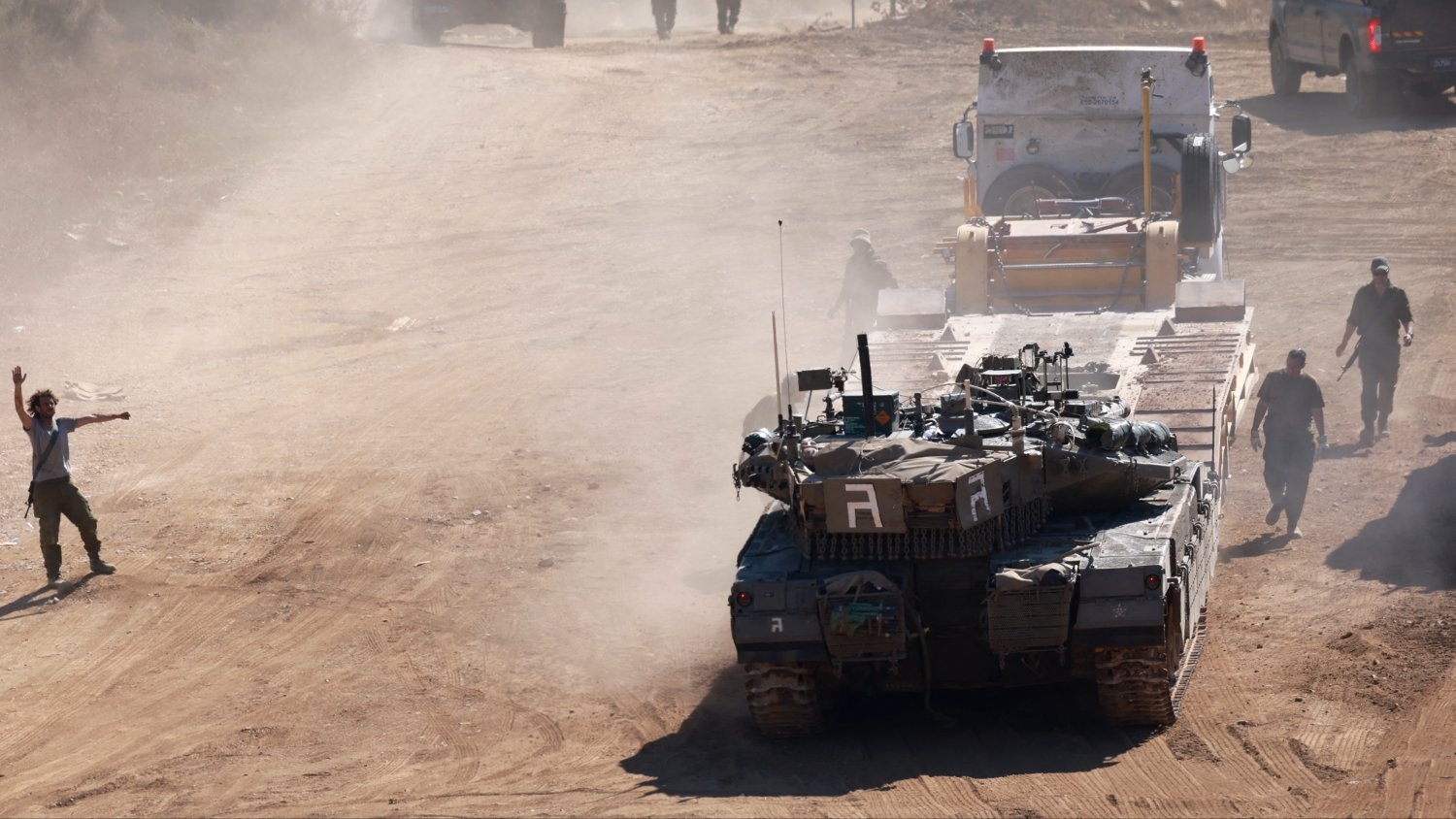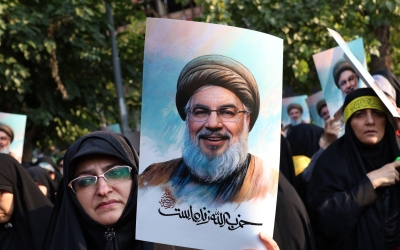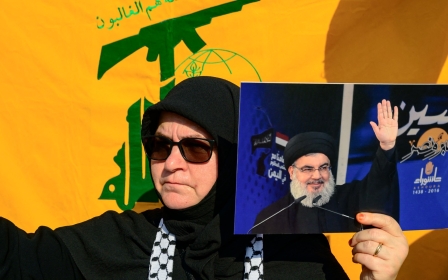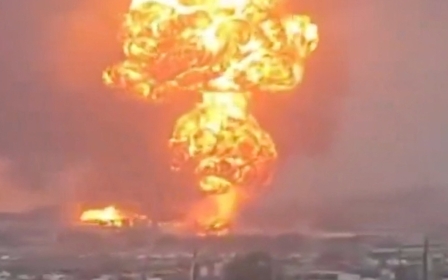Israeli forces launch cross-border raids in Lebanon as fears of ground invasion loom

Israeli forces have carried out cross-border raids in Lebanon ahead of a possible ground invasion that could come as soon as this week, several US newspapers have reported.
The Wall Street Journal reported on Monday that Israeli forces were focused on gathering intelligence and had entered tunnels operated by Hezbollah along the border between Israel and Lebanon.
The Journal reported that the raids had taken place "recently, as well as over the past months," and could serve as a precursor to a full-fledged ground invasion.
Citing six unnamed Israeli officials, the New York Times reported that the raids were focused on identifying the locations of Hezbollah’s tunnels and military infrastructure to help prepare either for a ground or aerial attack.
New MEE newsletter: Jerusalem Dispatch
Sign up to get the latest insights and analysis on Israel-Palestine, alongside Turkey Unpacked and other MEE newsletters
Sources cited by the Times said an increase in "intensity and ambition" had taken place in the past few days.
Meanwhile the Washington Post reported, citing a US official, that Israel had informed Washington it was planning a "limited ground operation" in Lebanon that "could start imminently".
The official told the Post that the ground campaign would be smaller than Israel's 2006 war in Lebanon, and would be focused on clearing Hezbollah's "infrastructure along the border to remove the threat to Israeli border communities".
Later on Monday, Israeli Defence Minister Yoav Gallant told a meeting of local council heads in northern Israel that "the next phase in the war against Hezbollah will begin soon."
Earlier, Gallant told a group of soldiers that the country would carry out attacks "from the air, from the sea, and on land.”
To allow displaced residents of the border area to return safely home, "we will employ all of our capabilities, and this includes you," Gallant said.
At least 65,000 people have been displaced from northern Israel since the Hamas-led 7 October attacks on Israel.
Over 1 million Lebanese people may have already been displaced by Israel's aerial bombing campaign that began last week, Lebanon's Prime Minister Najib Mikati said on Sunday.
France's foreign affairs minister Jean-Noel Barrot urged Israel on Monday not to invade Lebanon.
"I ... urge Israel to refrain from any ground incursion and to cease fire. I call on Hezbollah to do the same and to refrain from any action likely to lead to regional destabilisation," Barrot told reporters during a visit to Lebanon.
Barrot also called on Hezbollah to agree to a ceasefire and said France would be stepping up its support for Lebanon's military.
US surrendered leverage over Israel
The reports of a possible Israeli invasion of Lebanon come after several weeks of major Israeli escalation against the country, beginning with a cyber attack on 17 September that targeted the pager devices of Hezbollah. Israel triggered the explosions of thousands of pagers and walkie-talkies across Lebanon, killing scores of people and injuring thousands.
Two days later on 20 September Israeli air strikes on the area of southern Beirut known as Dahiyeh killed 45 people, including two senior Hezbollah military commanders and other senior officials.
Days later, on 23 September, Israel began launching mass air strikes on Lebanon, killing hundreds of people including dozens of women and children.
During this time, Israel's army chief told troops to prepare for a possible ground invasion of Lebanon, while the head of the Israeli air force said it was preparing to assist in such a scenario.
On Friday, Israel launched a massive air strike on Beirut's southern suburbs, in what appeared to be the largest strike on the city since the 2006 war.
The air strike killed Hezbollah leader Hassan Nasrallah, dealing a devastating blow to the Lebanese movement. An unknown number of people were killed in the strikes.
Hezbollah, which has said its current conflict with Israel would end once Israel ends its war on Gaza, has vowed to continue operations against Israel.
A source close to the movement told Middle East Eye that while several Hezbollah leaders have been killed by Israel in such a short period of time, the group would be able to reorganise due to its decentralised structure that is not tied to one leader.
“We are ready for ground engagement with the enemy if they decide to enter,” Naim Qassem, Hezbollah's deputy leader, said in televised remarks on Monday.
All the while, US efforts to ramp down a wider regional war triggered by Israel's invasion of the Gaza Strip have appeared to fall apart.
Last week, the US and France worked together on a temporary truce proposal between Israel and Hezbollah, which Israel outright rejected.
Critics of the White House say it has repeatedly failed to back up its rhetoric of trying to achieve peace with actions. They say the US has surrendered its leverage by refusing to withhold arms to Israel to force it to the negotiating table.
Middle East Eye delivers independent and unrivalled coverage and analysis of the Middle East, North Africa and beyond. To learn more about republishing this content and the associated fees, please fill out this form. More about MEE can be found here.






